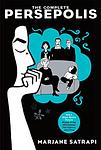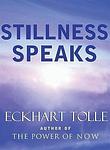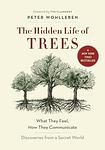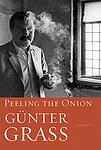The Greatest Iranian, German "Nonfiction" Books Since 2000
Click to learn how this list is calculated.
This list represents a comprehensive and trusted collection of the greatest books. Developed through a specialized algorithm, it brings together 291 'best of' book lists to form a definitive guide to the world's most acclaimed books. For those interested in how these books are chosen, additional details can be found on the rankings page.
Genres
Countries
Date Range
Reading Statistics
Click the button below to see how many of these books you've read!
Download
If you're interested in downloading this list as a CSV file for use in a spreadsheet application, you can easily do so by clicking the button below. Please note that to ensure a manageable file size and faster download, the CSV will include details for only the first 500 books.
Download-
1. Persepolis by Marjane Satrapi
This graphic novel is a memoir that provides a personal account of the author's childhood and young adult years in Iran during and after the Islamic revolution. The story portrays the impact of war, political upheaval, and religious extremism on ordinary people, while also exploring themes of identity, resilience, and the power of storytelling. Despite the harsh realities the protagonist faces, the narrative also includes moments of humor and warmth, providing a nuanced view of life in Iran during this tumultuous period.
-
2. Persepolis Two by Marjane Satrapi
This graphic novel continues the story of a young girl growing up in Iran during the Islamic Revolution. After being sent to Europe for her safety, she struggles with feeling out of place and longs for her homeland. Eventually, she returns to Iran, only to find it vastly different from the place she remembered. The book explores themes of identity, culture, and the effects of political upheaval on a personal level.
-
3. Reading Lolita in Tehran by Azar Nafisi
The book is a memoir that takes place in Iran from 1979 to 1997, during the Islamic Revolution and the Iran-Iraq War. The story focuses on a professor who secretly gathers seven of her most committed female students to read forbidden Western literature in her home. As they read and discuss works by authors such as F. Scott Fitzgerald, Jane Austen, and Vladimir Nabokov, they explore their personal dreams and the losses they suffered due to the political, social, and cultural climate of the time.
-
4. Funny in Farsi by Firoozeh Dumas
This memoir tells the story of an Iranian family who migrated to America in the 1970s, offering a humorous take on their experiences. The narrative focuses on the author's childhood and adolescence, exploring themes of cultural identity, assimilation, and the immigrant experience in America. It highlights the family's journey of navigating a new country and culture, while still holding on to their Iranian roots. The book showcases the author's ability to find humor in the most challenging situations, making it a heartwarming and amusing read.
-
5. Essays On Music by Theodor Adorno
This collection is a comprehensive anthology of critical essays on the subject of music, written by one of the 20th century's most influential philosophers and social critics. The work delves into the complexities of musical composition, performance, and reception, offering a profound exploration of the social, political, and cultural dimensions of the musical experience. The author critiques the commodification of music in capitalist societies and the way this impacts artistic authenticity and the listener's experience. Through a series of essays, the author examines various genres and eras, from classical to jazz to popular music, applying a rigorous theoretical framework that draws from Marxist thought, sociology, and psychoanalysis to dissect the role of music in modern life.
-
6. Stillness Speaks by Eckhart Tolle
The book is a guide to discovering profound inner peace and serenity through the power of mindfulness and stillness. It delves into the transformative potential of living in the present moment and disengaging from the constant chatter of the mind. The author presents a series of meditative insights and wisdom that encourage readers to connect with the depth of the present moment, transcending ego-driven thoughts and emotions. By embracing stillness, the book suggests that individuals can access a deeper sense of self-awareness, leading to a more fulfilling and enlightened existence.
-
7. The Invention Of Nature: Alexander Von Humboldt’s New World by Andrea Wulf
"The Invention of Nature" is a biographical account of Alexander von Humboldt, a 19th-century explorer, scientist, and naturalist who revolutionized the way we understand the natural world. Andrea Wulf chronicles Humboldt's travels across South America, his encounters with indigenous peoples, and his groundbreaking scientific discoveries that challenged prevailing notions of the natural world. Humboldt's ideas about interconnectedness and the unity of nature were ahead of their time and continue to influence environmentalism and conservation today. Wulf's book is a masterful exploration of one of history's most fascinating and influential figures.
-
8. Thomas Mann Heinrich Mann by Helmut Koopmann
The book provides a comprehensive study of the lives and works of two prominent German literary figures, who were also brothers. It delves into their complex relationship, contrasting ideologies, and individual contributions to literature and culture. The author examines their personal and professional journeys, exploring how their differing views on art, politics, and society reflected the broader intellectual and historical currents of their time. Through a detailed analysis of their novels, essays, and other writings, the book offers insights into the brothers' influence on each other and on the literary world, highlighting their lasting legacy in the context of German and world literature.
-
9. Along The Ganges by Ilija Trojanow
The book is a travelogue that takes the reader on a captivating journey along the sacred Ganges River, from its source in the Himalayas to its delta in the Bay of Bengal. The narrative is rich with descriptions of the diverse landscapes, cultures, and people encountered by the author. It delves into the profound spiritual significance of the river to millions of Hindus, as well as the contemporary challenges it faces due to pollution and modernization. Through personal reflections and encounters, the author explores the complex relationship between the river and the civilization it has nurtured for centuries, offering insights into the historical, religious, and ecological aspects of this iconic waterway.
-
10. Conquest Of The Useless by Werner Herzog
"Conquest of the Useless" is a reflective memoir that presents a collection of the author's diary entries written during the tumultuous production of a major film in the early 1980s. Set in the heart of the Amazon rainforest, the narrative captures the intense challenges faced by the film crew, ranging from logistical nightmares and clashing personalities to confrontations with nature and local cultures. The author's poetic and introspective prose delves into the emotional and existential upheavals experienced during the making of the film, revealing his relentless determination and the surreal experiences encountered in a remote and demanding setting.
-
11. The Other Education: What you should know about the natural sciences by Ernst Peter Fischer
"The Other Education: What You Should Know About the Natural Sciences" is a comprehensive guide that seeks to make the complex world of natural sciences more accessible and understandable to the layperson. It delves into various scientific disciplines, including physics, chemistry, and biology, providing insights into their fundamental principles, historical development, and their impact on society. The book also discusses the importance of scientific literacy, the role of science in shaping our worldview, and the need for a well-rounded education that includes a solid understanding of the natural sciences.
-
12. The Hidden Life Of Trees by Peter Wohlleben
This book offers a fascinating exploration into the complex life of forests, revealing the social networks and communication methods that trees use to survive and thrive. The author, a forester, draws on groundbreaking scientific discoveries to illustrate how trees are like human families: tree parents live together with their children, communicate with them, support them as they grow, share nutrients with the sick and the weak, and even warn each other of impending dangers. With deep understanding and an eye for the wonder of these essential organisms, the narrative transforms the way we perceive trees, encouraging us to appreciate the intricate and interconnected life of the forest.
-
13. Marzahn, Mon Amour by Katja Oskamp
"Marzahn, Mon Amour" is a reflective and poignant narrative that delves into the lives of ordinary people through the lens of a podiatrist working in the Marzahn district of East Berlin. The book offers a tapestry of human stories, as the protagonist encounters a diverse array of clients, each with their own unique backgrounds and experiences. Through the intimate setting of the treatment room, the author weaves together tales of the community's past and present, exploring themes of identity, resilience, and the search for meaning in the day-to-day. This work serves as a touching exploration of the seemingly mundane aspects of life that, upon closer inspection, reveal the depth and complexity of the human condition.
-
14. Crusade and Jihad: Islam and the Christian World by Bassam Tibi
This book explores the historical, ideological, and political aspects of the Crusades and Jihad, comparing and contrasting the two. It delves into the origins and evolution of the Crusades and Jihad, their impact on Christian and Islamic societies, and their relevance in today's world. The author also examines the role of religion in conflicts and the use of religious ideologies for political purposes, providing a comprehensive understanding of these complex issues.
-
15. Peeling the Onion by Günter Grass
"Peeling the Onion" is a memoir that explores the author's experiences during and after World War II. The author, a Nobel laureate, reveals his involvement with the Waffen SS, a paramilitary organization of the Nazi party, when he was a teenager. The book delves into the author's struggle with guilt and memory, his journey to becoming a writer, and his exploration of how personal and collective memory impact our understanding of history. It is a candid, introspective look at the complexities of identity, morality, and truth.
Reading Statistics
Click the button below to see how many of these books you've read!
Download
If you're interested in downloading this list as a CSV file for use in a spreadsheet application, you can easily do so by clicking the button below. Please note that to ensure a manageable file size and faster download, the CSV will include details for only the first 500 books.
Download












